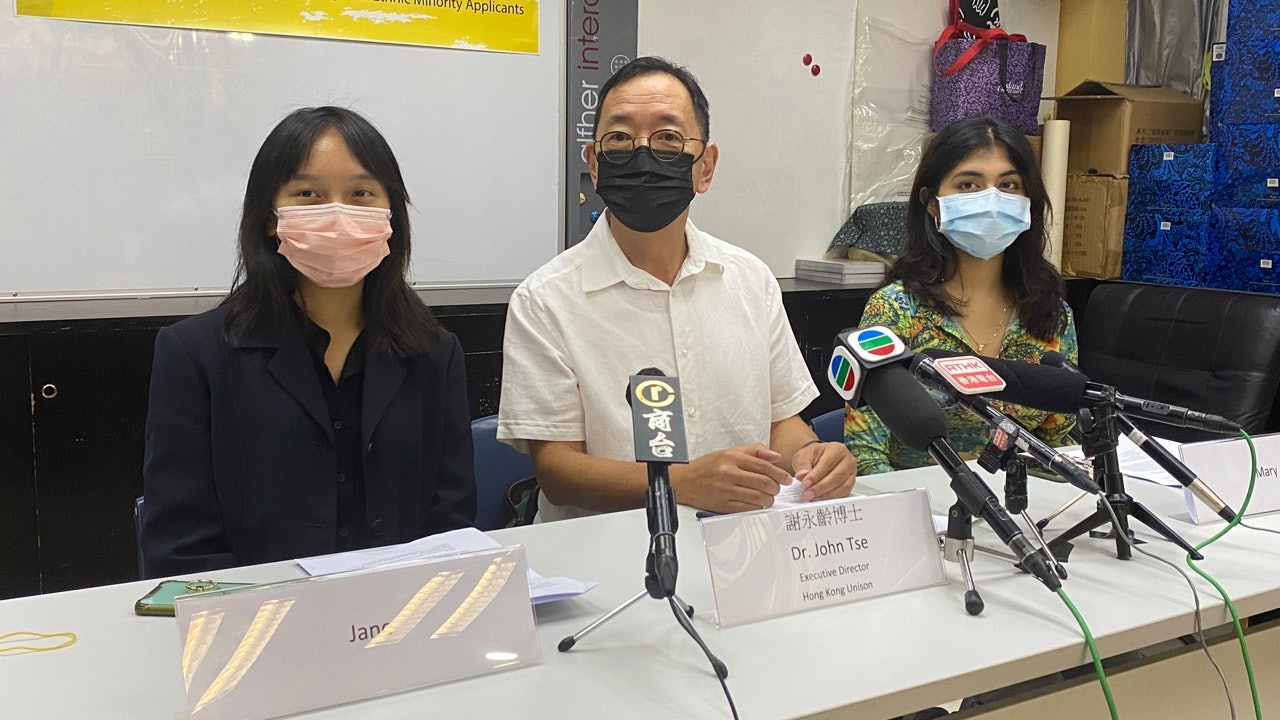Many non-Chinese speaking students will take the Chinese subject of the International Open Examination to replace the Chinese language score of the diploma examination in order to apply to tertiary institutions.
However, the conversion mechanism of Chinese grades in various tertiary institutions in Hong Kong is different, which is not conducive to non-Chinese speaking students to further study.
The Hong Kong Harmony Club announced today (22nd) a survey on "Difficulties in Substituting Qualifications in Chinese for Local Non-Chinese Speaking Students in the Diploma of Secondary Education Examination". The association inquired about 9 tertiary institutions and 350 associate degree programmes and found that 6 tertiary institutions, There is no uniform conversion mechanism for Chinese grades, and it depends on individual cases.
As for associate degree programmes, 109 programmes (about 31.3%) are not suitable for non-Chinese speaking students due to course requirements, such as teaching and interview language.
▼The Hong Kong Rongle Club released a survey on "Difficulties in Chinese Substituting Qualifications for Local Non-Chinese Speaking Students in the Diploma of Secondary Education Examination"▼
It is recommended that colleges provide Chinese language training to non-Chinese speaking students through information transparency
At present, most schools in Hong Kong provide non-Chinese-speaking students with Chinese courses of the same level as Chinese-speaking students, but most non-Chinese-speaking students have lower Chinese proficiency than Chinese-speaking students. GCE), General Secondary Education Diploma Examination (GCSE), International General Secondary Education Diploma Examination (IGCSE), British College Entrance Examination (GCE A-Levels), Applied Learning Chinese (ApL(C)), etc. grades, enrolled in colleges and universities.
Rongle Club pointed out that colleges and universities should standardize the conversion mechanism and admission requirements for "other Chinese language scores", and make relevant information public.
Xie Yongling, the director-general of the association, said that 6 of the institutions stated that the conversion of Chinese grades "depends on the case", that is, it is completely "arbitrary".
He questioned the treatment method, which is unfair to non-Chinese speaking students, and institutions are funded by public funds and have a responsibility to make the education system fair and just.
Luck Club recommends that institutions should clearly list the language information for associate degree programmes, interviews and work placements.
Currently, non-Chinese speaking students have fewer opportunities to learn Chinese after graduating from secondary school. Institutions should provide them with free and highly recognizable Chinese courses to cultivate their Chinese communication skills, help them continue their studies, and enhance their employment competitiveness. .
▼April 22 DSE Diploma Examination ▼
+11
Mary, a minority student
Mary is a second-year minority student at the Hong Kong University of Science and Technology, majoring in Economics and Marketing.
She said that due to the opaque conversion mechanism of "other Chinese language grades" in various institutions, even though she achieved the highest grades in Chinese in the General Secondary Education Diploma Examination (GCSE).
The secondary school teacher also advised her to estimate the converted result, which is equivalent to the third level of Chinese Language in the HKDSE, which caused her to fail to choose her favorite subjects in JUPAS that year.
Learning Chinese was made fun of and gave up practice
Mary said that when she tried to practice oral Chinese, she was teased by her classmates and teachers, and finally gave up because she didn't want to be a "monkey in the circus".
Another ethnic minority student, Jane, who is currently studying at the Law Department of the University of Hong Kong, also said that Hong Kong's Chinese education support for ethnic minorities is insufficient.
She has studied Chinese in Hong Kong for many years. Although she can understand Cantonese in general, her writing and reading skills are only at the level of the third and fourth grades of primary school, and she can only master basic conversation.
Education and Career Expo|DSE Missing Candidates Learn about Overseas Information Looking forward to Studying in Japan Survey Reveals Minority Families Earn Over 50% Less Monthly Than General Families Nearly Half Unemployed Due to Epidemic Research for the second home: 3 interviewed kindergartens do not consider the biggest difficulty in admitting ethnic minority students, understaffed minority youth photography exhibition talks about "belonging" Native Indian male: only in middle school is exposed to Indian culture

